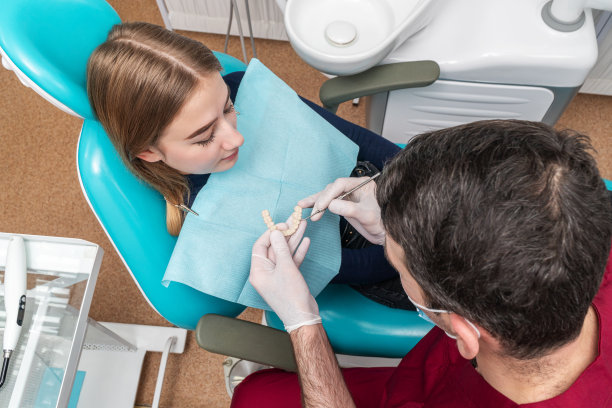Summary: Dental implants can significantly enhance oral health and restore one鈥檚 confidence. However, achieving success in this procedure requires adhering to essential guidelines and precautions. This article outlines four critical aspects: choosing a qualified professional, understanding the pre-operative requirements, following post-operative care instructions, and maintaining ongoing oral hygiene. By focusing on these areas, patients can ensure a smoother experience and optimal outcomes for their dental implants.
1. Choose a Qualified Dental Professional

Selecting the right dental professional is the first step towards a successful dental implant procedure. Look for a board-certified oral surgeon or a dentist who specializes in implantology. Their qualifications and experience can largely influence the outcome of your treatment.
During consultations, ask about their success rates, complications, and see if they can provide before-and-after photos of previous patients. Ensuring that they utilize advanced technology and have access to updated procedures is also crucial in reducing risks.
Additionally, consider reading online reviews or asking for referrals from friends and family. A well-regarded professional not only boosts your confidence but also enhances your overall experience throughout the treatment process.
2. Understand Pre-Operative Requirements
Prior to your dental implant procedure, there are essential assessments and preparations required. Your dentist will typically conduct dental x-rays and possibly a CT scan to evaluate the bone structure and characteristics of your mouth.
It is also vital to inform your dentist about your medical history, including any medications you are taking. Individuals with chronic conditions, such as diabetes or osteoporosis, may require special considerations before proceeding.
Furthermore, your dentist will likely advise on lifestyle changes, such as quitting smoking and limiting alcohol intake, as these factors can affect healing. Understanding these pre-operative requirements will ensure you are fully prepared for the procedure ahead.
3. Follow Post-Operative Care Instructions
After the dental implant surgery, adhering to post-operative care is crucial for successful healing. Your dentist will provide specific guidelines on how to manage pain, swelling, and care for the surgical area.
Taking prescribed medications diligently and following a soft diet for the initial recovery phase can prevent complications. Avoid any strenuous activities that may disrupt the healing process in the first week.
Its important to attend follow-up appointments as scheduled, allowing your dentist to monitor the healing progress. This step ensures that any issues are addressed promptly, promoting a smoother recovery and implant integration.
4. Maintain Ongoing Oral Hygiene Practices
Once healed, maintaining excellent oral hygiene is essential for the longevity of your dental implants. Brushing your teeth twice daily and flossing at least once a day helps prevent plaque accumulation around the implant site.
Regular dental check-ups every six months will allow your dentist to monitor your overall oral health and the condition of the implants. Professional cleanings can further ensure that bacteria and plaque dont contribute to gum disease.
Additionally, using an antibacterial mouthwash can help keep bacteria at bay. Adopting a proactive approach towards your oral health not only benefits the implants but also contributes to your overall well-being.
Summary:
In conclusion, achieving success in your dental implant procedure involves a multifaceted approach. From choosing a qualified dental professional to understanding the necessary pre-operative and post-operative care, every detail matters. Moreover, maintaining excellent oral hygiene is essential to preserving the health and function of your implants. Following these guidelines will significantly enhance your chances of a successful outcome.
This article is compiled by Vickong Dental and the content is for reference only
Vickong Dental
Vickong Dental is a large medical group established in Hong Kong in 2008 by professors from well-known medical universities in Guangdong and Hong Kong, as well as medical doctors from key national '985' universities (including Master's supervisors and senior professors). The chain of branches brings together expert dentists with PhDs and Master's degrees from Hong Kong and Mainland China, committed to providing high-quality dental treatment.
"Vickong Dental Practices the University Motto of 'Healing and Serving Society,' with a Stable Operation for Sixteen Years. It Has Been honored with Hong Kong Enterprise Leaders's Choice,' and is a Global Trusted Implant Center for the Nobel Implant System. Recommended by Hong Kong Metro Broadcast and Guangdong Television, it Serves Customers from Over Thirty Countries and Regions, Gaining the Trust and Favor of Citizens from the Guangdong-Hong Kong-Macau Greater Bay Area and Surrounding Cities.

Thousands of customers' unanimous praise
The most recognized and highly recommended dental service by customers in the Guangdong-Hong Kong-Macau Greater Bay Area
We Ensure You Receive Detailed Care and Attention Here
Hong Kong standards, Shenzhen prices, Your Trusted English-speaking dentists

Vickong Dental Medical-Grade Instrument Disinfection Process
Vickong Dental Medical-Grade Instrument Disinfection Process

Vickong Dental Chain: A Warm and Comfortable Environment for Treatment






Appointment Hours

Q&A
Why choose Vickong Dental?
Vickong Dental practices the university motto 「Medicine to Benefit Society」, with each branch bringing together highly qualified dentists with doctoral and master’s degrees from Hong Kong and the Mainland, and has maintained seventeen years of steady operation。Recipient of 「2024 Hong Kong Enterprise Leaders Brand」, 「2025 Hong Kong Enterprise Leaders Brand」, a Nobel Biocare Global Trusted Implant Center, and a brand recommended by Metro Radio Hong Kong and Guangdong TV。
To date, we have served customers from more than thirty countries and regions,earning exceptionally high word-of-mouth recognition and trusted recommendations from residents across the Guangdong-Hong Kong-Macao Greater Bay Area and surrounding cities
We have eight major branches in Zhuhai、Shenzhen,and a consultation and service assurance center in Hong Kong,so you can book a free consultation at any time for any questions,which is very reassuring.
If I do not accept the quotation after the CT scan, will I be charged??
No! As long as the actual treatment has not started, you will not be charged any fees.
Will there be any additional charges during the treatment process?
No, there won’t be any additional charges. Before treatment begins, we will clearly explain the treatment plan and its corresponding fees. Only after the patient agrees and signs the consent form will we proceed with the dental service.
Can I pay in Hong Kong dollars?
Yes. Vickong Dental accepts payment in Hong Kong dollars. The amount will be converted based on the exchange rate of the day, and the applicable rate will be clearly communicated to you in advance.
Can I reschedule my appointment at any time?
Yes. Please contact us via **WeChat** or **WhatsApp** as early as possible, providing your original appointment time and details, along with your preferred new date and time slot for rescheduling.













